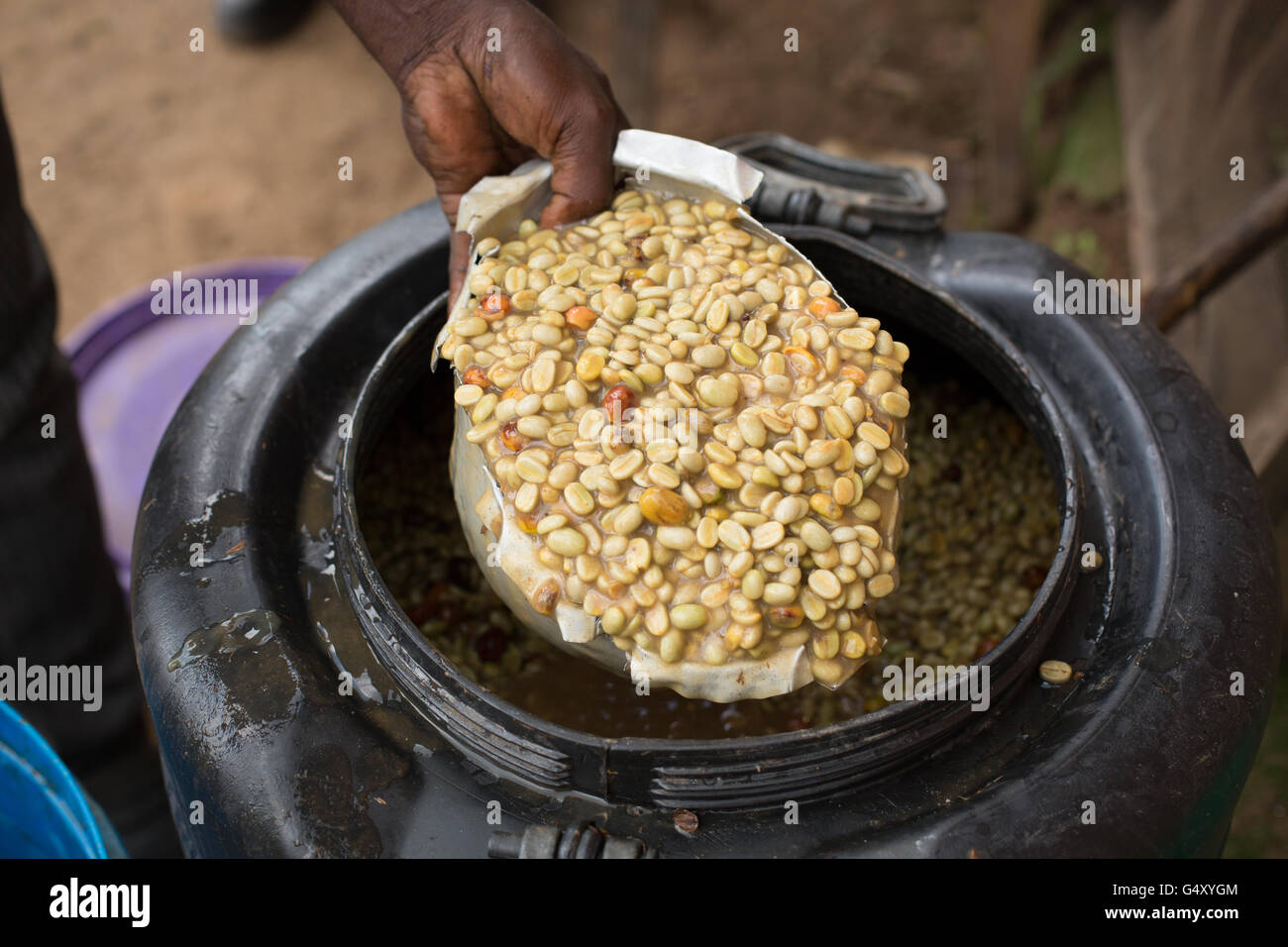
A worker stirs coffee beans in a fermentation tank at a small coffee
Step 3: Coffee Fermentation Process. Now, it's time to put your feet up and wait whilst the culture gets to work on the coffee beans. It can take 24-48 hours for fermentation to take place. During this time, the chemical make-up of the coffee beans is altered. The result is amazing flavors and aroma.

Fermented Coffee Beans What are They? Do They Taste Better?
Fermentation can refine the sweetness, body, and acidity of the coffee, and even add a fruity note to it. Take note, though, when coffee is poorly fermented, it can result in a moldy flavor, which ruins the flavors. This is why it's crucial to monitor the process and adequately understand how fermentation works.

A worker stirs coffee beans in a fermentation tank at a small coffee
Fermentation normally takes 12 to 48 hours, but this might vary depending on ambient circumstances. The fermenting duration has an effect on the flavour of the coffee beans. A coffee with a shorter fermentation time will have a more acidic flavour, whereas a coffee with a longer fermentation time will have a more mellow flavour. The type of.
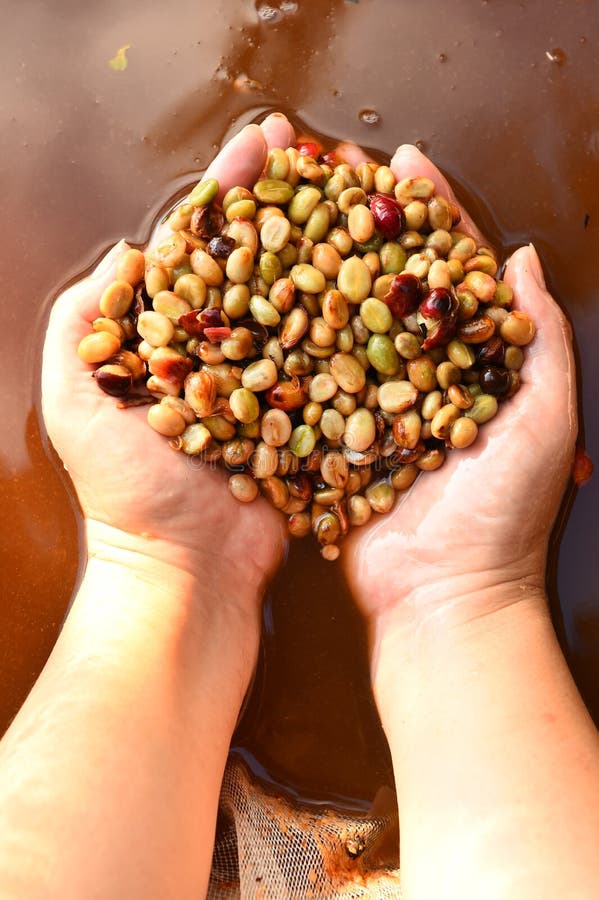
Coffee Beans,in the Ferment and Wash Method Stock Image Image of
The effects of fermented coffee flavors are still somewhat contested in the coffee world, but it does seem apparent that there's a correlation between the process and what our palates experience. For instance: In Huehuetenango, Guatemala, the cool overnight temperatures at high elevations make fermentation a longer process, sometimes taking as.
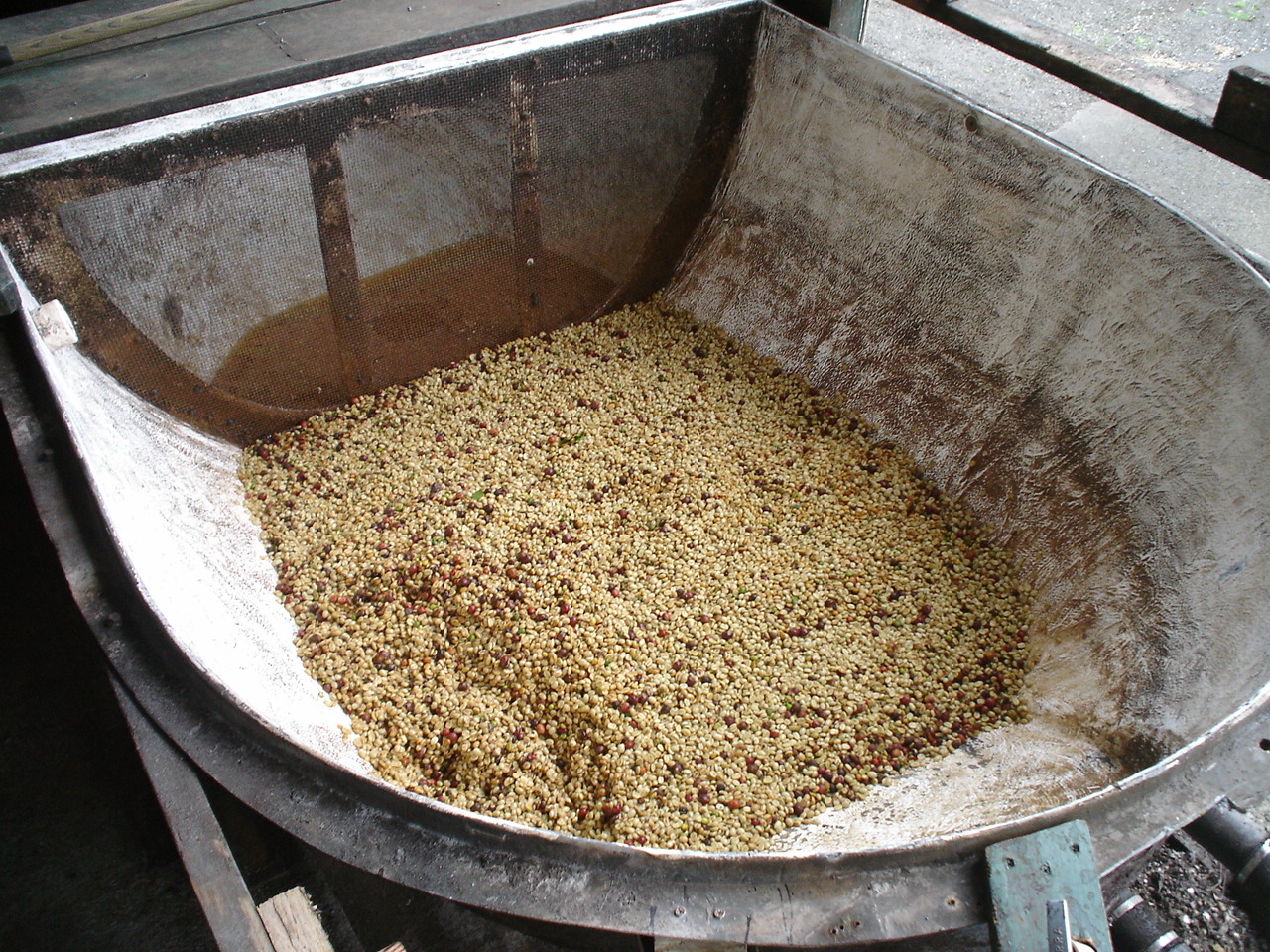
Coffee Fermentation
Fermentation is traditionally used to increase a beverage's alcohol content, but it also creates a concoction full of helpful probiotics and bacteria. It is natural to wonder if you can ferment coffee, and the simple answer is yes! Fermented coffee is similar to fermented tea, and many coffee companies are experimenting with coffee kombucha.

"Fermenting" coffee beans. Food, Coffee beans, Beans
Most coffee is a little fermented since it happens naturally as wet-processed beans soak, breaking down enzymes and producing sugars. It also makes it easier to remove the husk and pulp. In this.

Fermentation Fruit Dry Coffee Beans Honey Simi Wet Process Organic
Launched by Maverick & Farmer Coffee (founders of the Flying Squirrel Coffee) the 'Orange you Curious' coffee blend is a result of a unique barrel fermentation process where freshly pulped Arabica beans are fermented with orange juice for 24 hours. The natural yeasts present on the orange skins, as well as the coffee skins, work on the fruit.

Fermenting Coffee With Fruit A New Trend Perfect Daily Grind
Fermentation for coffee has long been a simple matter of practicality—processors harnessed the power of bacteria and yeasts to extract the coffee seed from its fruit. It wasn't viewed as a quality additive process; it was risk mitigation—reducing the amount of material separating us from the green bean, thereby reducing processing risk.

Fermenting Coffee With Fruit A New Trend Perfect Daily Grind
Adding the Sugar. Sugar feeds fermentation, and you need 1/2 cup of sugar for each 2-quart batch of kombucha coffee. You can use white, brown or raw sugar. Sprinkle the sugar over the ice and pour the freshly brewed coffee over it. Stir the coffee, and let it reach room temperature. Set a 4-ounce SCOBY on top of the coffee.
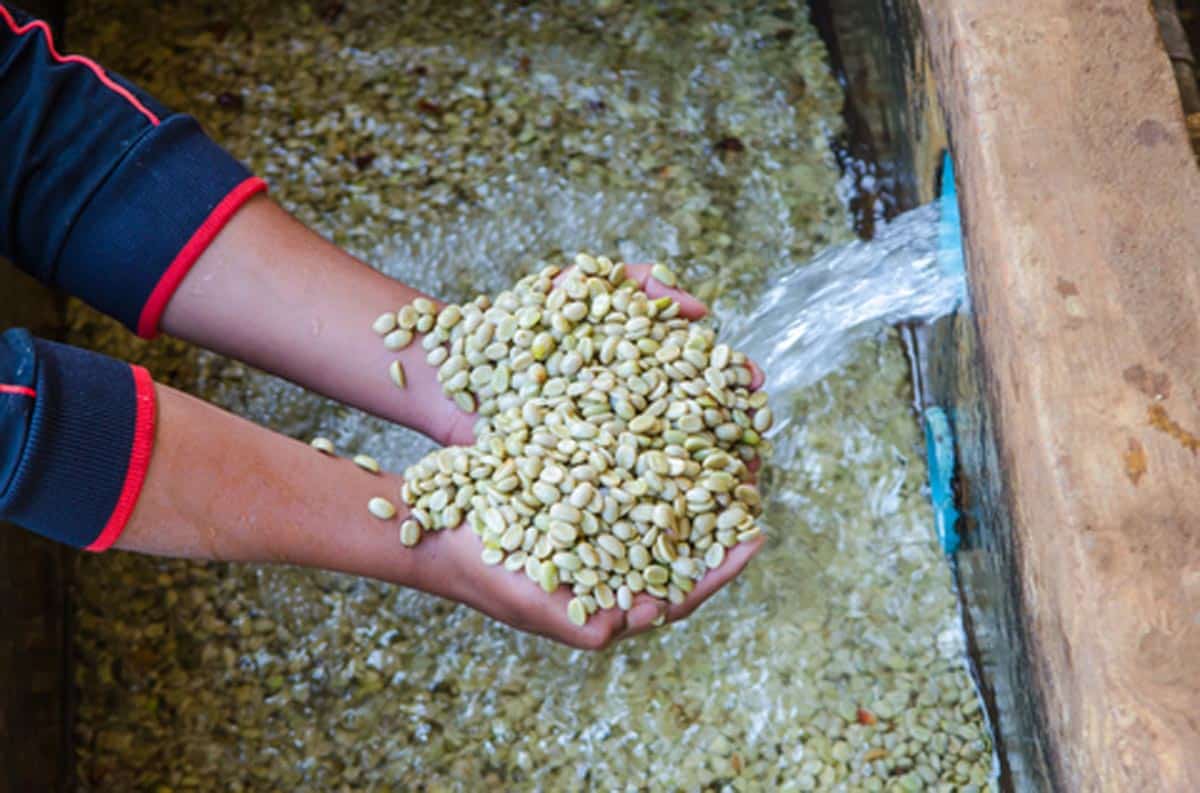
Coffee Health Benefits Why Kopi Luwak Might Be The World's Healthiest
2- Add 4 tablespoons of sugar and stir it gently to dissolve all the sugars. Adding sugar is necessary for the fermentation even if you don't like sweetened coffee. 3- Let the mixture s teep for 12-24 hours at room temperature. After brewing, strain the coffee concentrate using a filter to remove the grounds.
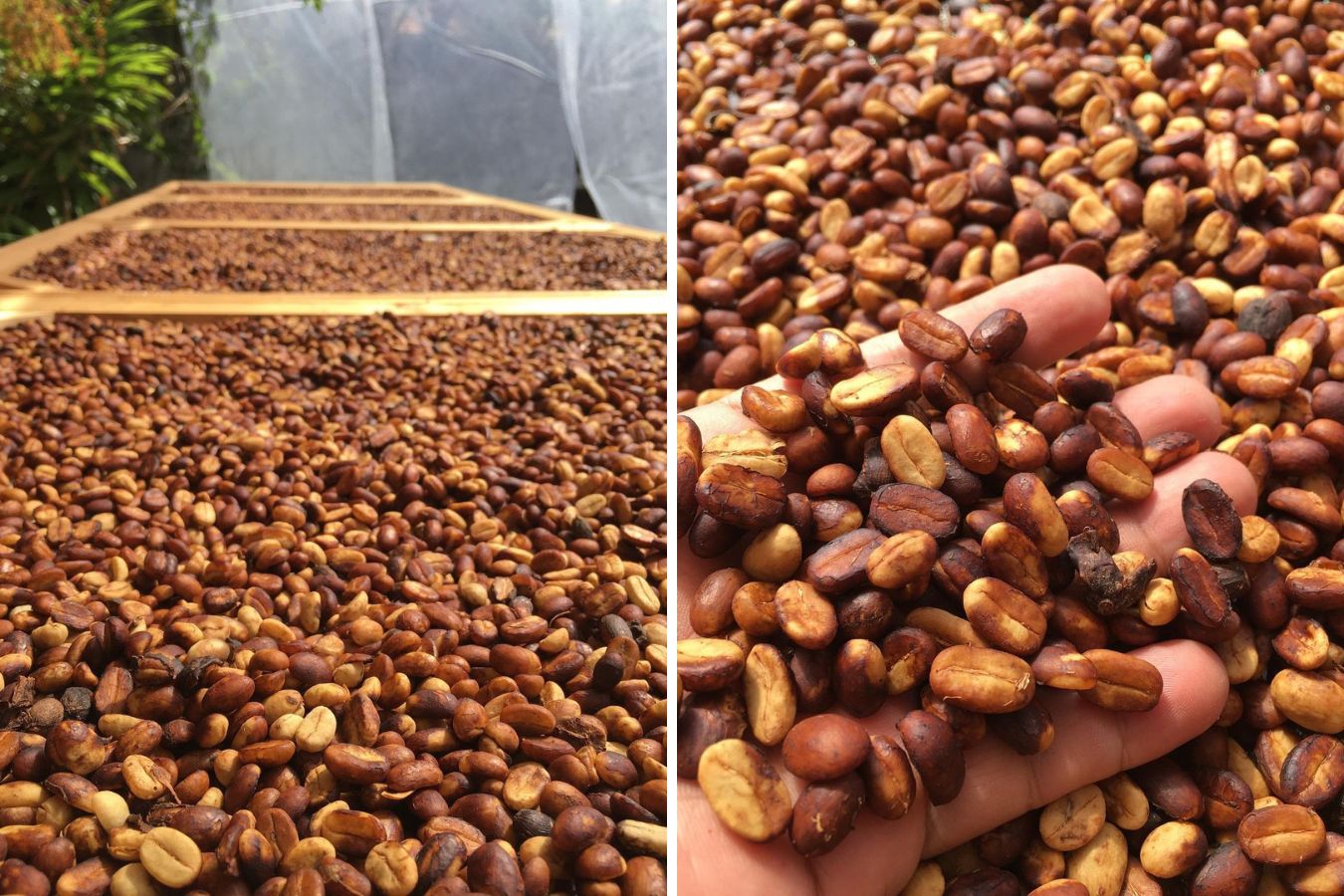
Coffee Fermentation How Can It Improve Coffee Quality?
Fermentation unlocks these hidden flavors, enhancing the coffee's inherent fruitiness and bringing forth vibrant and nuanced flavors of raspberries, stone fruits, and tropical delights. Nothing is added, like in flavored coffees, where totally unrelated aromas like vanilla, hazelnut, or chocolate are added.
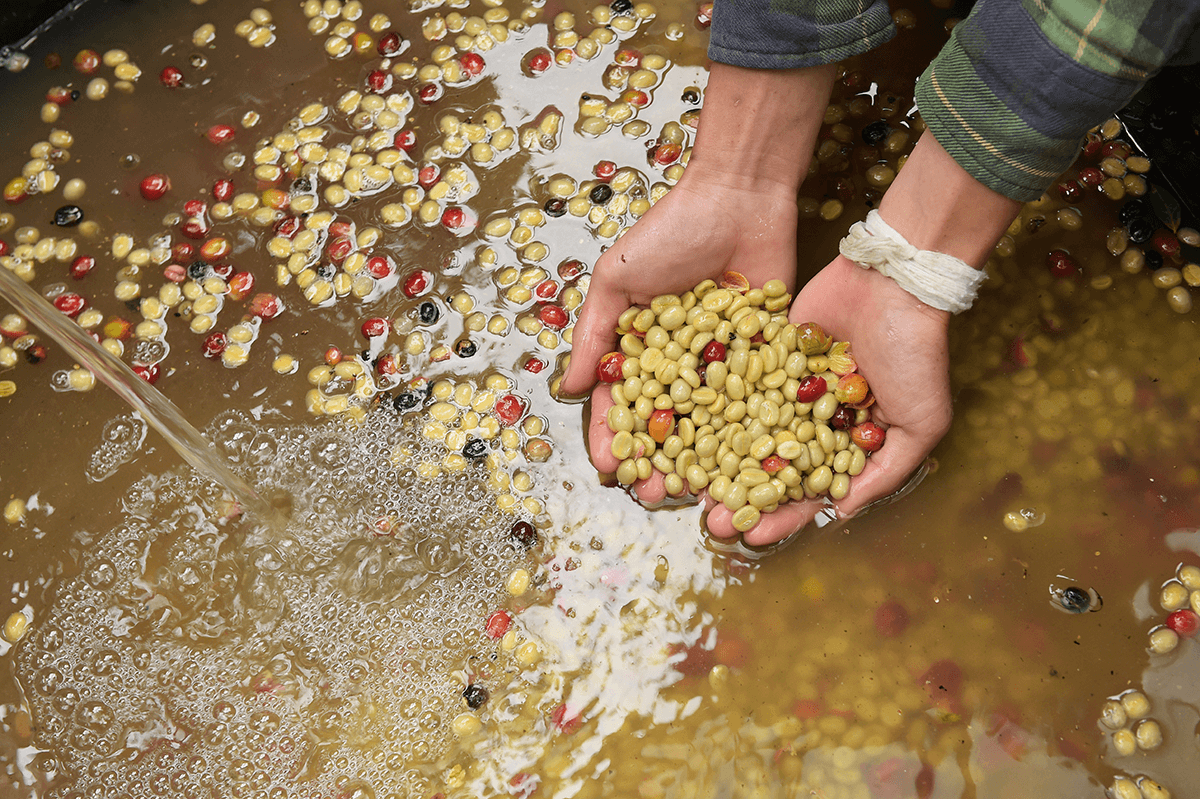
All About Coffee Fermentation Black Insomnia Coffee
The process produces fermented coffee, a drink similar to traditional kombucha made with tea. Coffee kombucha is tangy and often made by fermenting coffee cherries with koji. This is done by using a culture starter, a mix of yeast and bacteria, and letting the mixture ferment for a few days. This process can also be used to produce anaerobic.

Everything you ever wanted to know about fermented coffee
Stem, a Paris-based company, is also propagating and fermenting coffee cells lines derived from coffee plants in bioreactors. The company adds natural flavors taken from coffee byproducts to the.

F Fermentation Dry Coffee Beans Honey Wet Process Organic Specialty
Fermented coffee, also known as cultured coffee, is coffee beans fermented after being pulped and the husk is removed. When you roast, ground, and brew fermented coffee, you can tell that fermented coffee has an entirely different aroma. Another type of coffee is fermented after the brewing process is complete.

Pin on Processing
Fermented coffee might seem like a fad, but the act of fermentation promotes some notable and positive changes in the beans. As well as having the regular health benefits of coffee, fermentation makes the drink easier to digest, safer from harmful bacteria, and lower in tannins ( 1 ).

Fermenting coffee beans, Kenya Stock Image C049/3000 Science
By incorporating fermented coffee into your diet, you could enhance your gut health and enjoy the benefits that come with a well-balanced digestive system. Reduced Gastrointestinal Discomfort. Another advantage of fermented coffee is its low acidity. Traditional coffee can cause gastrointestinal discomfort and heartburn for some people due to.